- Home
- Warhammer 40K
A Memory of Tharsis - Josh Reynolds
A Memory of Tharsis - Josh Reynolds Read online
Contents
Cover
A Memory of Tharsis – Josh Reynolds
About the Author
A Black Library Publication
eBook license
A Memory of Tharsis
Josh Reynolds
The black mills of Quir never slept.
Volcanic furnaces constantly vomited clouds of grey ash up through sky-scraping chimneys. The thunder of mining equipment echoed forever up from abyssal quarries. Everywhere was the cacophony of industry run wild. It echoed even unto the uppermost reaches of the stratosphere, and the half-finished orbital docking ring that girdled Quir like a halo of metal. But it wasn’t merely that hellish clamour which caused Fabius Bile to wince in discomfort as he descended the ramp to the landing platform.
Rather, it was the sound of raw voices, raised in song. The atonal din caused the thin air to reverberate, and made Bile’s remaining teeth itch down to their cancerous roots. His fingers clenched about the skull of brass that topped the sceptre he leaned on. It glowed faintly with an unnatural sheen. Power thrummed through it, menacing and covetous. There was an intelligence there, if rudimentary, and it desired to be put to use. The sceptre was an amplifier, and its slightest touch could elicit a raging torrent of agony in even the strongest subject. He’d named it Torment, in a fit of whimsy.
Bile had no doubt that a similar compulsion had motivated this unwelcome display. Hunched, malformed shapes clad in the ragged remnants of ancestral hazard suits stood on the rust-riddled landing platform before him. No two of the factory workers were alike. Some were mostly human, save for an unsightly deformity, while others were barely bipedal. A few sported feathers or scales. Many had coiling, cephalopod-like tentacles rather than hands. One lumbering brute bore a rack of antlers that would have put a Fenrisian elk to shame. They were arrayed in two rows to either side of the disembarkation ramp, like soldiers awaiting the arrival of a visiting dignitary.
The mutants swayed in time to the orchestral piece echoing down from the gargoyle-shaped vox-casters mounted high above the landing platform. The bursts of music drew forth a crude hymn from the ravaged throats of the gathered workers. Cybernetic cherubs swooped overhead, brass-and-steel wings hissing. The tiny creatures shrilled at one another in corrupted binary as they swept incense-spewing censers back and forth above the gathering, further adding to the baroque ridiculousness of it all.
Bile stood for a moment, taking it all in. Hololithic readouts shimmered into view before his eyes as his power armour’s sensors scanned his immediate surroundings. Familiar genetic patterns sprawled lazily across the data, each one marked with the telltale spiral of his signature. His lips stretched in a thin smile.
These creatures were his children, in all the ways that mattered. He had grown their ancestors in vats, pulled them screaming from the darkness and delivered them up to their destiny. To see their descendants now evoked in him a rare flicker of pity, if only for the squandered potential. And yet, they thrived. They were strong, in their way. Durable. Adaptable, if lacking in the ability to carry a tune. Fit for purpose. That was all the Lady Spohr, Magos-Queen of Quir, asked of them.
Spohr was a strange one, even by the standards of renegade Mechanicus adepts. Like all queens, she demanded fitting tribute from her supplicants. If she was displeased with her gift, things could get out of hand very quickly. The rotting remains of those who’d disappointed her hung from the chimneys of her factories. No one lived to repeat such foolishness.
Each time he came to Quir looking for repairs to his ancient and dilapidated medicae equipment, he had to bring something new and utterly unique. Things that no other supplicant could offer her. It was almost a game. He had crafted her workers, woven a fleshweave, even cloned her original organic form, for purposes she had not divulged. But she had been growing bored with his arts even then. Still, he would persevere. He had a responsibility.
That was his work. To improve upon the flawed designs of those who had come before, and seed the stars with a New Man – one adapted to the grim darkness of the current millennium. The weight of such a destiny threatened to crush him, at times. But he would press on, whatever the cost. The task must be completed.
He sighed and started down the ramp. The ancient servos in his armour whined in protest, and the stretched faces of his skin-coat moaned softly. Securing Spohr’s services was imperative. And for that, he needed to keep her engaged. Once she had her tribute, she would inevitably lose interest. During their previous interactions, it was only by holding her attention, by engaging her organic half, that he had been able to ensure that he got what he needed, afterwards. Like the queens of old, Spohr had little interest in fair bargains.
An honour guard of cybernetic soldiers waited at the foot of the ramp. They were clad in shell-like ceramite beneath thick coats and cowls, and clutched antique radium carbines. Strange sigils had been carved into the ceramite, and their coats, like his own, were made from a patchwork of stolen flesh. Some wore grotesque masks beneath their cowls, while others had exposed faces that were more metal than meat. They watched his approach warily, targeting lenses whirring as they took stock of him. His own targeting systems returned the favour, intercepting and meshing with the foreign systems, albeit briefly. His armour, like many things exposed to the persistent environmental uncertainties of warp space, had developed something akin to a rudimentary sentience. Its curiosity, like his own, was insatiable.
For an instant, he saw himself through the artificial optics of the cybernetic warriors. A helmet, pockmarked by impact craters, its colouring scraped away to reveal bare grey ceramite in places. Metallic arachnid limbs, topped by blades, saws and glistening syringes, rose over his bent frame, twitching in time to some faint, internal modulation. Like his armour and Torment, the chirurgeon had a mind of its own. Bile smiled. At times, he fancied that he wasn’t so much a singular being as a colony of like-minded symbiotes – each of them feeding off and being fed on in turn by the others. They were as much a part of him as the blight that gnawed at his vitals like an all-consuming fire. He grimaced. Thinking of it made the pain worse. The blight was eating him hollow. Soon, he would be gone entirely.
The chirurgeon hissed, and a syringe jabbed his neck. A cool flush filled his system, burying the pain beneath a chemical balm. There were more important matters to attend to than his own inevitable slide into dissolution. Only his work mattered. Work that would stutter to a halt unless he secured the services of his hostess.
An enclosed mechanised palanquin wheezed its way across the loading platform on six pneumatic limbs. It was an ornate monstrosity, dripping with unnecessary gilt and machine-carved grotesquery. Its curtains were made from a chromatic fleshweave of his own design, which shifted hues with every step of its heavy, clawed feet. It was one of his more recent gifts to the mistress of this world, and one he took no little pride in. Though he often preferred to err on the side of function over form, it was nonetheless a rare pleasure in these fraught times to indulge his creativity.
More of the cybernetic soldiers followed the palanquin at a disciplined lope, their radium carbines held at the ready. These were more heavily armoured than the others, less meat and more machine, sealed in crustacean-like shells of almost organic-looking metal. They wore masks that had been wrought in the shape of daemonic faces, and their coats were branded with the runes of the four Ruinous Powers. They steamed with unnatural heat in the open air, as if whatever passed for their blood was on the cusp of boiling over.
Bile could feel a familiar quiver in the air that had nothing to do with the off-key singing of the assembled workers. The warriors were conversing with one another, and with their mist
ress, through a neural node-link. He smiled politely, awaiting her arrival. The palanquin slowed as it approached, and its limbs bent with a querulous groan. It lowered itself to the ground. The curtains curled aside with a somnolent murmur as the Magos-Queen of Quir rose and stepped down onto the platform.
The Lady Spohr was a work of art destined never to be completed. She was tall and heavy, built for war rather than idle contemplation. Thick robes, intricately woven with scenes from Martian legend, hid her lower half, and her upper was encased in a heavy golden cuirass bulging with bundles of cables, pumps, hoses and sensory nodes. Smoke issued from vents on her armour, filling the air around her with a cloying miasma.
Thin sensor-filaments extended outwards from her chest and shoulders, their tips pulsing in time to a silent rhythm. Her arms were folded before her, loose sleeves dangling. Her cowl was thrown back, revealing a skull of gold, etched in binary, and a profusion of isolated power cables, which spilled across her shoulders like the mane of some veldt-born felinoid. She wore a loose belt of silver-plated skulls about the swell where her hips might once have been. Each of the silver skulls was marked with a different cogwheel rune.
Her eyes clicked, focusing on him. She moved forwards smoothly, with artificial grace. Bile bowed as low as he was able, and said, ‘You are truly a most welcome sight for this weary traveller, my lady. A beacon in the eternal night of our exile.’
Spohr paused. ‘Flattery. A sure sign you have come to bargain, Fabius.’ Her voice was not the rasp one might expect. Instead, her words clicked like well-oiled gears. ‘I hope you have brought a suitable tribute.’ She glanced up at the gunship. ‘A sensor sweep of your vessel revealed nothing of interest.’ There was a warning note in her voice. ‘I considered destroying you as you descended, as a warning to others. It is not wise to come here empty-handed.’
It was Bile’s turn to hesitate. This was always the most dangerous part of the negotiations. She might decide to kill him out of hand, if he didn’t prick her curiosity. He made a show of glancing around, and gestured to the singing workers with Torment.
‘Was this gathering your idea?’
‘They sing your praises. A hymn to Pater Mutatis, Changemaster of the Sixfold Helix. Your creations love you, even when they belong to another.’ Her tone told him nothing of how she might feel about that. Nor, in truth, did he particularly care. That his creations were designed to venerate him seemed only sensible. A tool that could turn on its creator was of little use, and love was a stronger chain than fear.
But these were not his creations, only their descendants. Like the fleshweave curtains of her palanquin, the ancestors of her workers had been a gift. They had been designed to her specifications, and grown in his few remaining flesh-vats, in the aftermath of his expulsion from Canticle City and the destruction of his facilities there. An expenditure of dwindling resources, in those days. That they had survived at all was impressive. That they had bred true was nothing short of a miracle. Bile looked at Spohr.
‘A fine gift, their ancestors. Don’t you agree?’
Spohr turned. ‘Come.’
Her manner was as terse as ever. He took no offence. Spohr’s mind was a vast web, stretched between every node and cogitator on the forge world. Her attentions were split between a thousand different tasks. The sheer amount of raw data would drive a lesser mind insane. Bile had often thought that his own work would be easier if he could approach it from multiple angles simultaneously. Perhaps one day such a thing might be possible. Until then, he would have to settle for his own two hands, and the aid of his chirurgeon.
He walked with her across the platform, followed at a discreet distance by her maniple of guards. An itch at the nape of his neck told him that there were others he couldn’t see, watching him through targeting scopes. It was to be expected. Anything less, and he might have been insulted.
‘It has been seventy-five point eight rotations of the seasonal cycle since your last visit. On average, your visits occur every one hundred rotations. You are early.’ She paused, listening to something only she could hear. Her attentions snapped back into focus a moment later. ‘Explain.’
‘Perhaps I missed you.’
Spohr looked at him. ‘Your attempts at humour have not improved in the intervening rotations.’ Cylindrical gibbet cages hung here and there from the uppermost reaches of the facility, to dangle over the platform. Inside several of them, mutants crouched, groaning. As Spohr led him past several cages, one of the prisoners reached through the bars towards Bile, slurring a plea for mercy.
He batted its groping claw aside and laughed as the cage spun in a lazy circle. ‘It has never been a strength of mine, I admit.’
‘Prevarication. Why are you early?’
‘Necessity.’ Bile coughed. He felt the chirurgeon tense, pulling tight against his spine, and internal readouts flashed across the inside of his helmet. He dismissed them. ‘My requirements are simple, but urgent. I am at a… delicate stage in my work. I cannot afford any delay.’
They left the cages behind and continued on to the edge of the platform. A heavy rail, decorated with machine-precise carvings of an obscene nature, separated them from the smog-choked skies. Bile looked out over the horizon, bracing himself against the high winds that tore at the edges of the platform. Below, a massive ore-hauler, its hull dotted with tumorous malformations, surfaced from the smog-bank with a rumble of engines and rose towards the ring of atmospheric processing centres. It was accompanied in its flight by a flock of smaller bat-like shapes, which shrieked and spun almost playfully through the air. The strange flock dispersed and swept back down into the smog as the ore-hauler gained altitude.
The processed and refined ore it carried would be transported out of the upper atmosphere and to the ever-growing circumference of the orbital docking ring. Quir, like its mistress, was a work in progress.
That urge to tinker was a familiar one. He felt it himself, whenever he considered his own physiology. Unlike Spohr, however, his efforts yielded precious few improvements. At best, they held things in stasis. For now, that would have to do. His obsolescence could not be avoided, but his work would live on. That was all that mattered.
‘Your heart rate has elevated by a percentile of point nine nine nine. Are you ill?’
Bile coughed into his fist. Blood speckled his gauntlet. He could feel his hearts straining in their traces, and the weight of something cancerous growing in his abdomen. ‘No more so than usual,’ he said. He peered at her. ‘Do you ever wonder what might have been?’
‘I endeavour to weigh all potentialities microsecond to microsecond.’ She paused, head cocked. He felt an itch in his cortex, and knew she was initiating a neural congress with a node somewhere on the planet below. A hiss of binary slipped from behind the golden rictus, pattering across his ears like the whisper of rain. The moment passed as swiftly as it had come. ‘That which cannot be calculated is irrelevant. That which cannot aid in calculation is also irrelevant.’
‘And are those the same calculations that led you to abandon Mars all those long centuries ago?’ A careful question, designed to prick her curiosity. He turned, watching something that might have been a shadow stagger-dance across the platform. More of the shadow-things whirled and twitched in the corners or among the gathered mutants. He’d seen such things before, in transit through the warp. Echoes of the dead, flickering across the perceptions of the living. The flotsam and jetsam of the great Sea of Souls.
Spohr glanced at him as his words registered. An inadvertent, almost human, gesture. She hesitated. It was a small thing. A twitch of lenses, a brief series of clicks, but Bile saw it and congratulated himself. She was intrigued.
‘I do not remember Mars,’ she said, finally. ‘Memories serve no useful purpose. They are–’
‘Irrelevant, yes,’ he said, pretending to watch the shadows creep and dance. ‘You know, from orbit, the landmass your facilities inhabit quite resembles those on the slopes of Tharsis Tholus. I thoug
ht you’d chosen it knowingly.’
Another hesitation. So brief as to be unnoticed save by one alert for it. ‘The resemblance is irrelevant. I chose it because it best serves my needs.’
Bile turned away from the shadows. Below, a flock of the flapping, bat-like things took flight from beneath the platform. They spiralled up into the air, shrieking a strange, sad song. He watched them for a moment, before replying.
‘I noted signs of ongoing terraforming efforts as I entered orbit. Almost as if someone were attempting to incite the formation and eruption of volcanic activity. Tharsis Tholus was built into a volcano, was it not?’
‘It is for thermal harvesting purposes. I grow weary of this discussion. Where is my tribute?’ The question was delivered sharply. Her optic lenses clicked in irritation. He had her. Anger was one of the few emotions left to her.
Bile smiled and pressed his advantage. ‘Still, it was beautiful, in its way.’
‘Beauty is irrelevant. Irrelevancies are purged from the dataflow. Mars – Tharsis – was – is – irrelevant to current operating parameters. Quir is my home, now.’ There was a certain finality to that statement. An irrevocable implication. Nonetheless, he continued.
‘Irrelevance is a matter of perception, I suppose. What is a person but the sum of their experiences, good and bad? All things contribute to the whole, even the most insignificant of occurrences. Weigh them, pare them away, and soon you will be left with nothing.’
‘Not nothing. Something better.’
Bile shrugged. ‘There are too many fools in Eyespace who seek to divest themselves of past failures. They yearn to rewrite history, as if by doing so they might erase the sins of history. What is done is done. One must build on a foundation of regrets, mistakes and frustrations if one is to ascend properly. One must always look forward, not backward.’
‘Nothing of value can be built on weakness.’
‘Weakness is the soil in which the seeds of future strength are sown.’ He gestured to himself. ‘Weakness of flesh, of body and mind, compels me to heights undreamt of by my former peers. I have remade demigods in my image, and drawn from the wellspring of life itself. If I were certain in my strength, pure of function, I would not have achieved half of those deeds which see my signature writ in the blood and marrow of innumerable peoples.’

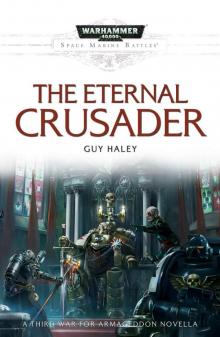 The Eternal Crusader - Guy Haley
The Eternal Crusader - Guy Haley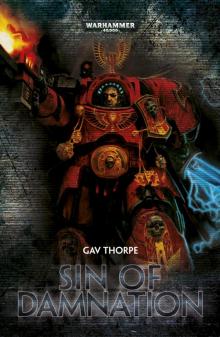 Sin of Damnation - Gav Thorpe
Sin of Damnation - Gav Thorpe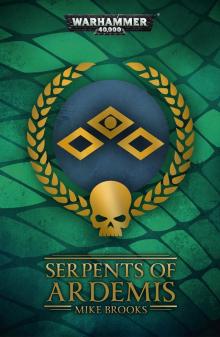 Serpents of Ardemis - Mike Brooks
Serpents of Ardemis - Mike Brooks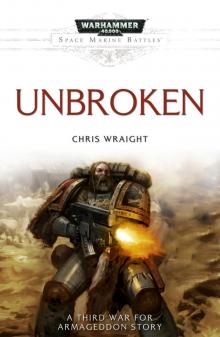 Unbroken - Chris Wraight
Unbroken - Chris Wraight Last Flight - Edoardo Albert
Last Flight - Edoardo Albert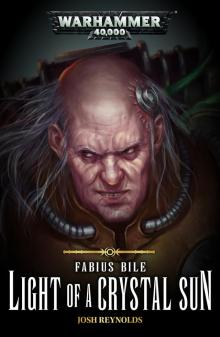 Light of a Crystal Sun - Josh Reynolds
Light of a Crystal Sun - Josh Reynolds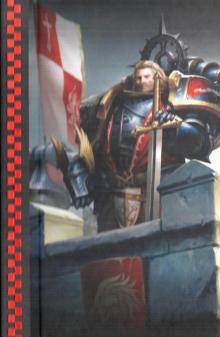 Lion El'Jonson- Lord of the First - David Guymer
Lion El'Jonson- Lord of the First - David Guymer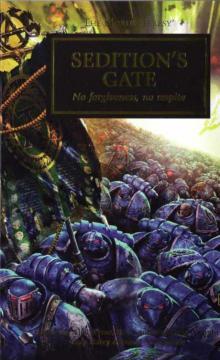 Sedition's Gate - Nick Kyme & Chris Wraight
Sedition's Gate - Nick Kyme & Chris Wraight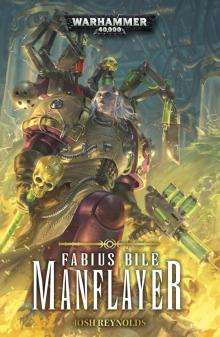 Manflayer - Josh Reynolds
Manflayer - Josh Reynolds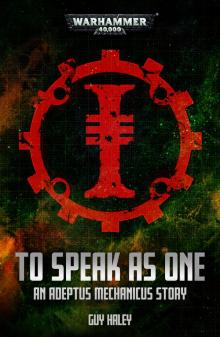 To Speak as One - Guy Haley
To Speak as One - Guy Haley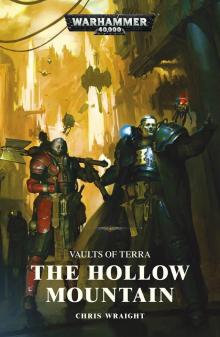 Vaults of Terra- The Hollow Mountain - Chris Wraight
Vaults of Terra- The Hollow Mountain - Chris Wraight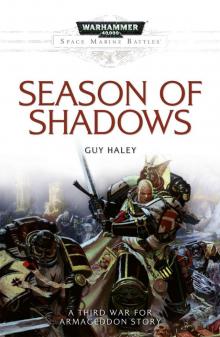 Season of Shadows - Guy Haley
Season of Shadows - Guy Haley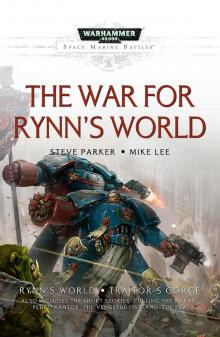 The War for Rynn's World - Steve Parker & Mike Lee
The War for Rynn's World - Steve Parker & Mike Lee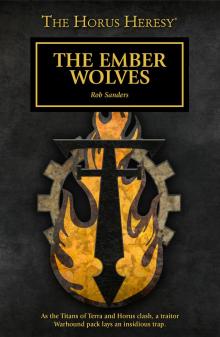 The Ember Wolves - Rob Sanders
The Ember Wolves - Rob Sanders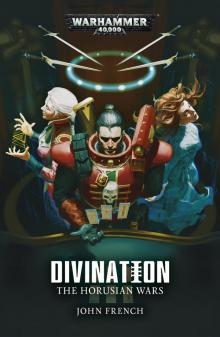 Divination - John French
Divination - John French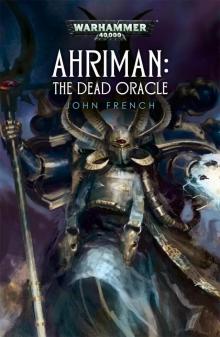 The Dead Oracle - John French
The Dead Oracle - John French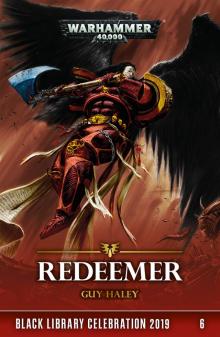 Redeemer - Guy Haley
Redeemer - Guy Haley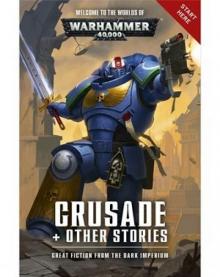 Crusade & Other Stories - Dan Abnett Et Al.
Crusade & Other Stories - Dan Abnett Et Al.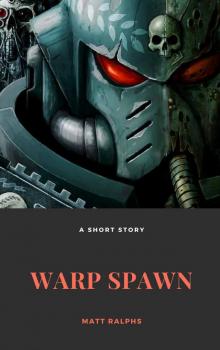 Warp Spawn - Matt Ralphs
Warp Spawn - Matt Ralphs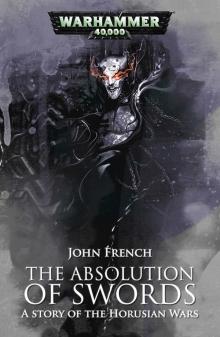 The Absolution of Swords - John French
The Absolution of Swords - John French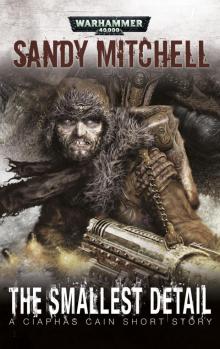 The Smallest Detail - Sandy Mitchell
The Smallest Detail - Sandy Mitchell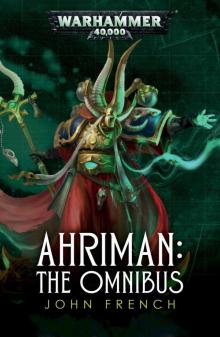 The Omnibus - John French
The Omnibus - John French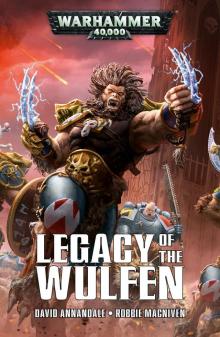 Legacy of the Wulfen - David Annandale & Robbie MacNiven
Legacy of the Wulfen - David Annandale & Robbie MacNiven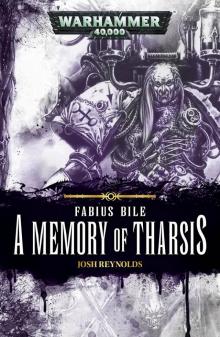 A Memory of Tharsis - Josh Reynolds
A Memory of Tharsis - Josh Reynolds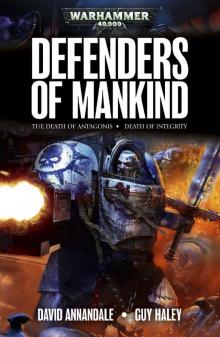 Defenders of Mankind - David Annandale & Guy Haley
Defenders of Mankind - David Annandale & Guy Haley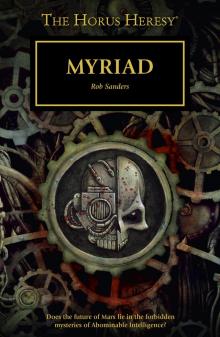 Myriad - Rob Sanders
Myriad - Rob Sanders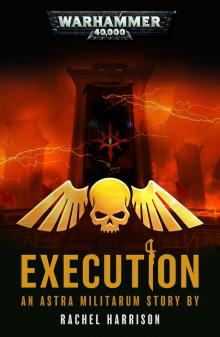 Execution - Rachel Harrison
Execution - Rachel Harrison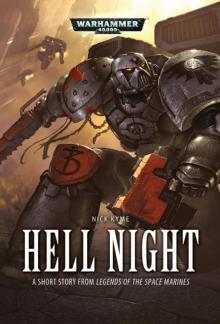 Hell Night - Nick Kyme
Hell Night - Nick Kyme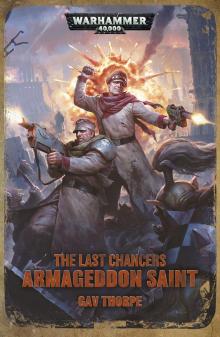 Armageddon Saint - Gav Thorpe
Armageddon Saint - Gav Thorpe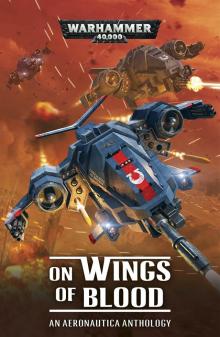 On Wings of Blood
On Wings of Blood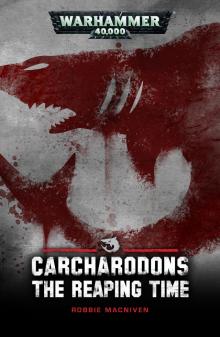 The Reaping Time - Robbie MacNiven
The Reaping Time - Robbie MacNiven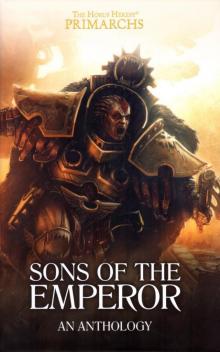 Sons of the Emperor
Sons of the Emperor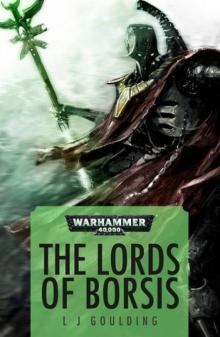 The Lords of Borsis - L J Goulding
The Lords of Borsis - L J Goulding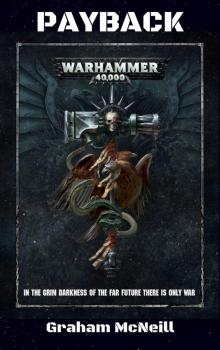 Payback - Graham McNeill
Payback - Graham McNeill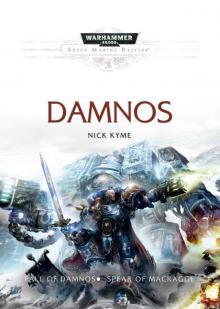 Damnos - Nick Kyme
Damnos - Nick Kyme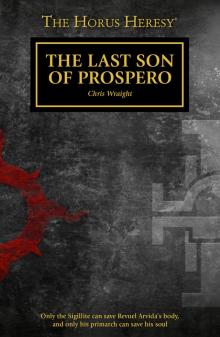 The Last Son of Prospero - Chris Wraight
The Last Son of Prospero - Chris Wraight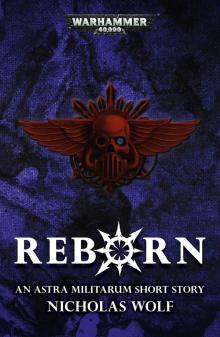 Reborn - Nicholas Wolf
Reborn - Nicholas Wolf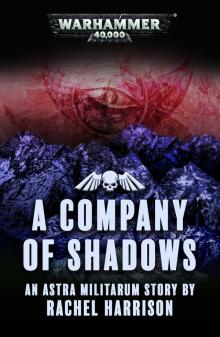 A Company of Shadows - Rachel Harrison
A Company of Shadows - Rachel Harrison Assassinorum- Divine Sanction - Robert Rath
Assassinorum- Divine Sanction - Robert Rath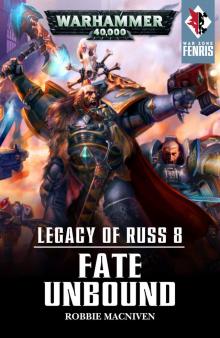 Fate Unbound - Robbie MacNiven
Fate Unbound - Robbie MacNiven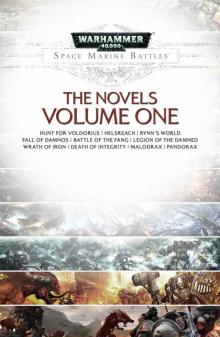 Space Marine Battles - the Novels Volume 1
Space Marine Battles - the Novels Volume 1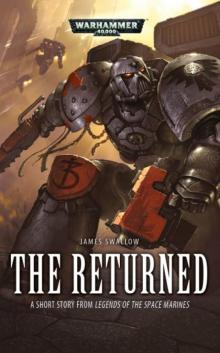 The Returned - James Swallow
The Returned - James Swallow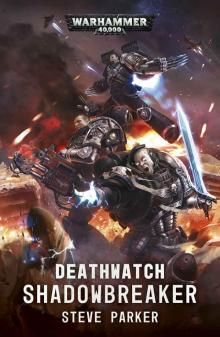 Shadowbreaker - Steve Parker
Shadowbreaker - Steve Parker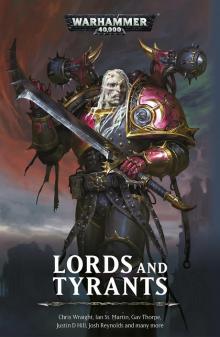 Lords and Tyrants
Lords and Tyrants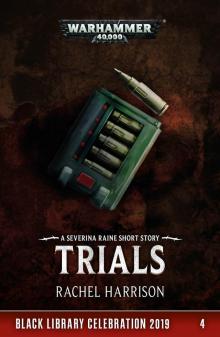 Trials - Rachel Harrison
Trials - Rachel Harrison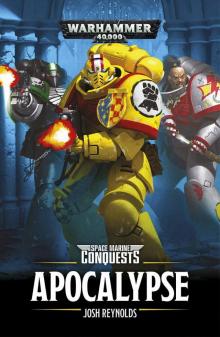 Apocalypse - Josh Reynolds
Apocalypse - Josh Reynolds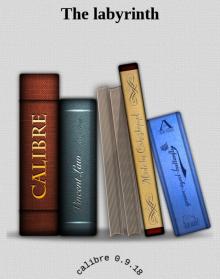 The labyrinth - Richard Ford
The labyrinth - Richard Ford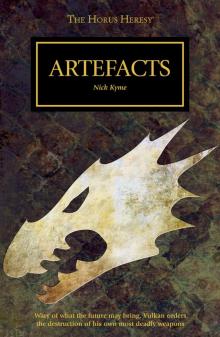 Artefacts - Nick Kyme
Artefacts - Nick Kyme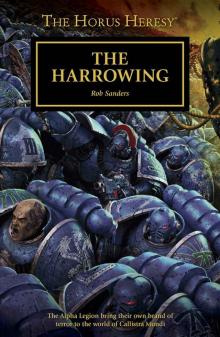 The Harrowing - Rob Sanders
The Harrowing - Rob Sanders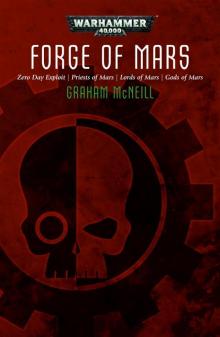 Forge of Mars - Graham McNeill
Forge of Mars - Graham McNeill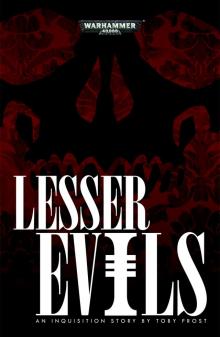 Lesser Evils - Toby Frost
Lesser Evils - Toby Frost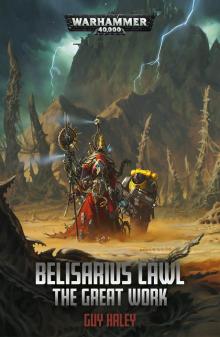 Belisarius Cawl- the Great Work - Guy Haley
Belisarius Cawl- the Great Work - Guy Haley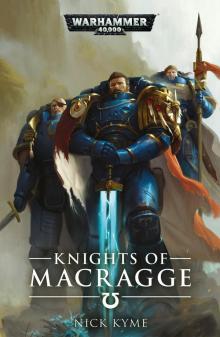 Knights of Macragge - Nick Kyme
Knights of Macragge - Nick Kyme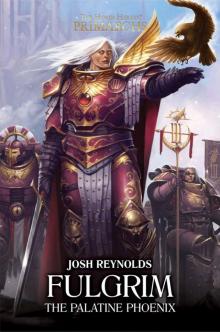 Fulgrim- The Palatine Phoenix - Josh Reynolds
Fulgrim- The Palatine Phoenix - Josh Reynolds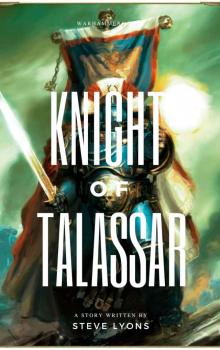 Knight of Talassar - Steve Lyons
Knight of Talassar - Steve Lyons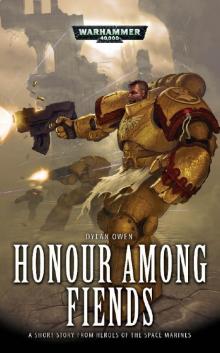 Honour Among Fiends - Dylan Owen
Honour Among Fiends - Dylan Owen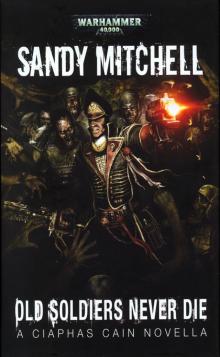 Old Soldiers Never Die - Sandy Mitchell
Old Soldiers Never Die - Sandy Mitchell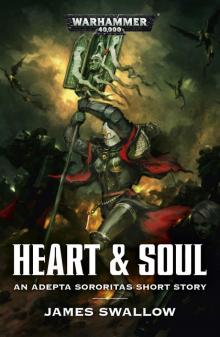 Heart & Soul - James Swallow
Heart & Soul - James Swallow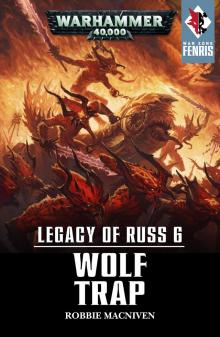 Wolf Trap - Robbie MacNiven
Wolf Trap - Robbie MacNiven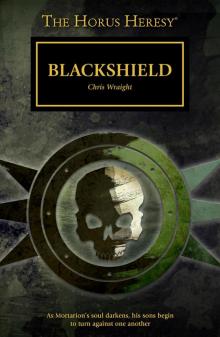 Blackshield - Chris Wraight
Blackshield - Chris Wraight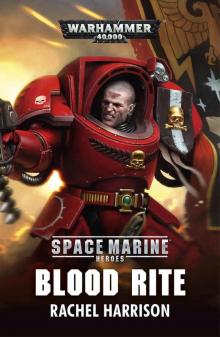 Blood Rite - Rachel Harrison
Blood Rite - Rachel Harrison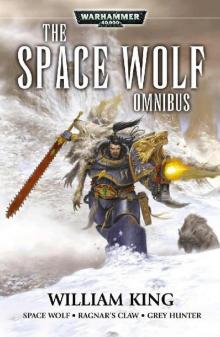 The Space Wolf Omnibus - William King
The Space Wolf Omnibus - William King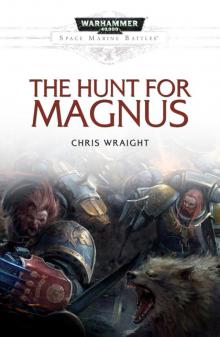 The Hunt for Magnus - Chris Wraight
The Hunt for Magnus - Chris Wraight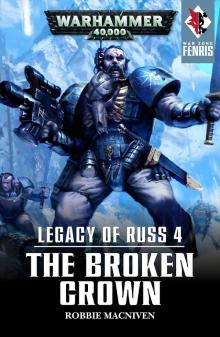 The Broken Crown - Robbie MacNiven
The Broken Crown - Robbie MacNiven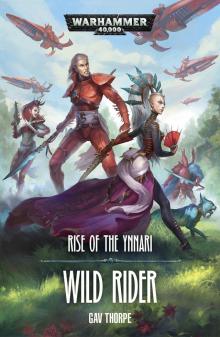 Wild Rider - Gav Thorpe
Wild Rider - Gav Thorpe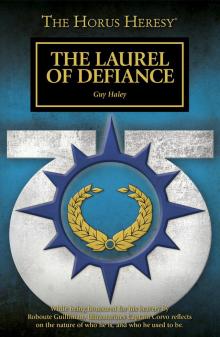 The Laurel of Defiance - Guy Haley
The Laurel of Defiance - Guy Haley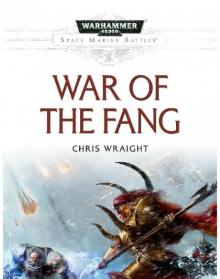 War of the Fang - Chris Wraight
War of the Fang - Chris Wraight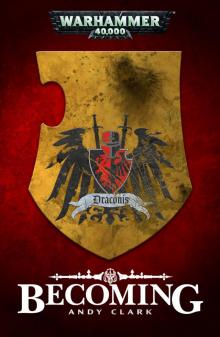 Becoming - Andy Clark
Becoming - Andy Clark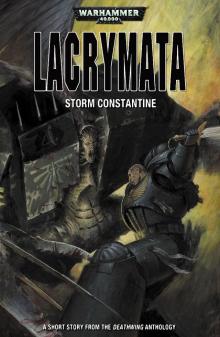 Lacrymata - Storm Constantine
Lacrymata - Storm Constantine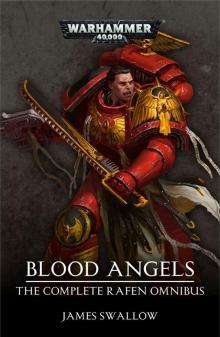 Blood Angels - The Complete Rafen Omnibus - James Swallow
Blood Angels - The Complete Rafen Omnibus - James Swallow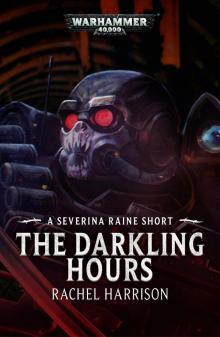 The Darkling Hours - Rachel Harrison
The Darkling Hours - Rachel Harrison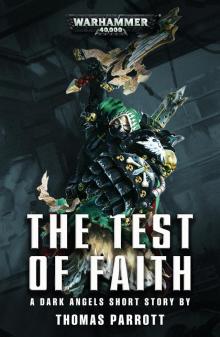 The Test of Faith - Thomas Parrott
The Test of Faith - Thomas Parrott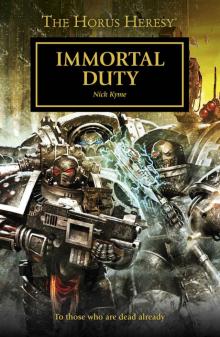 Immortal Duty - Nick Kyme
Immortal Duty - Nick Kyme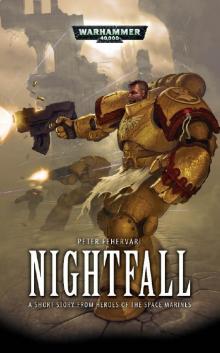 Nightfall - Peter Fehervari
Nightfall - Peter Fehervari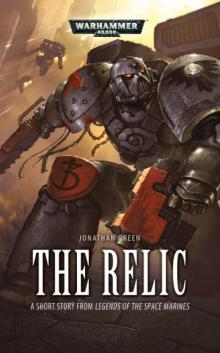 The Relic - Jonathan Green
The Relic - Jonathan Green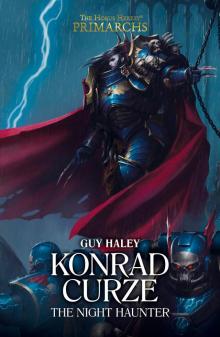 Konrad Curze the Night Haunter - Guy Haley
Konrad Curze the Night Haunter - Guy Haley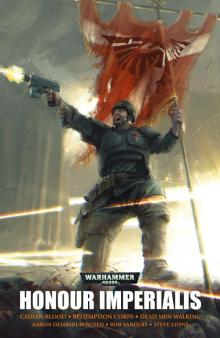 Honour Imperialis - Aaron Dembski-Bowden
Honour Imperialis - Aaron Dembski-Bowden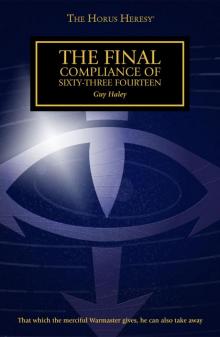 The Final Compliance of Sixty-Three Fourteen - Guy Haley
The Final Compliance of Sixty-Three Fourteen - Guy Haley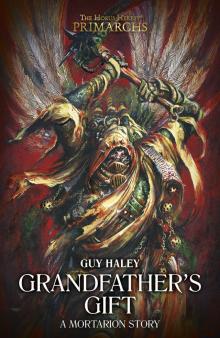 Grandfather’s Gift - Guy Haley
Grandfather’s Gift - Guy Haley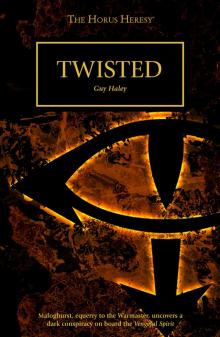 Twisted - Guy Haley
Twisted - Guy Haley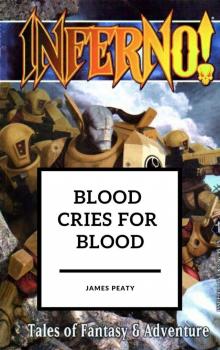 Blood Cries for Blood - James Peaty
Blood Cries for Blood - James Peaty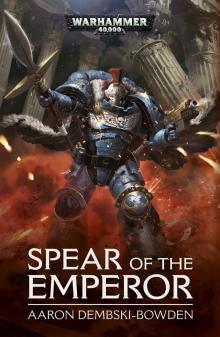 Spear of the Emperor - Aaron Dembski-Bowden
Spear of the Emperor - Aaron Dembski-Bowden All That Remains - James Swallow
All That Remains - James Swallow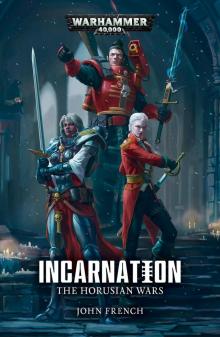 Incarnation - John French
Incarnation - John French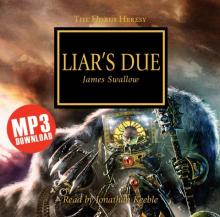 Liar's Due - Ben Swallow
Liar's Due - Ben Swallow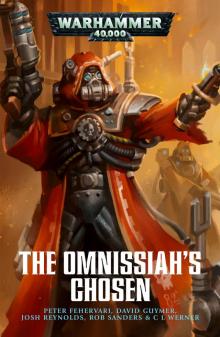 The Omnissiah's Chosen - Peter Fehervari
The Omnissiah's Chosen - Peter Fehervari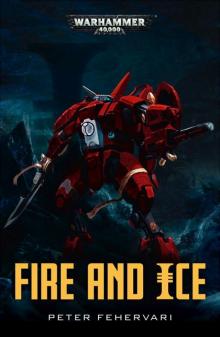 Fire and Ice - Peter Fehervari
Fire and Ice - Peter Fehervari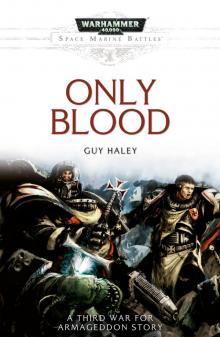 Only Blood - Guy Haley
Only Blood - Guy Haley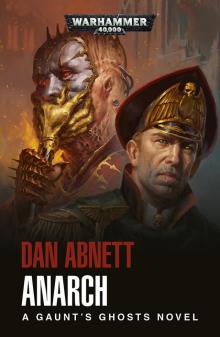 Anarch - Dan Abnett
Anarch - Dan Abnett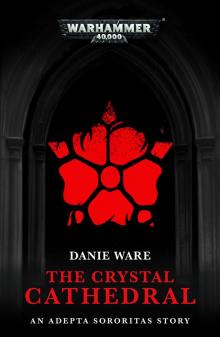 The Crystal Cathedral - Danie Ware
The Crystal Cathedral - Danie Ware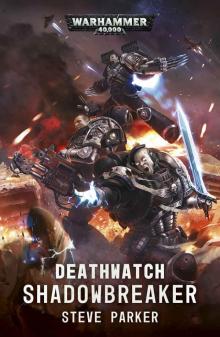 Shadowbreaker
Shadowbreaker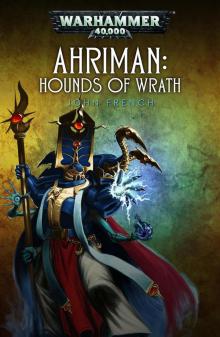 Hounds of Wrath - John French
Hounds of Wrath - John French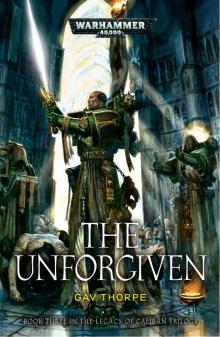 The Unforgiven - Gav Thorpe
The Unforgiven - Gav Thorpe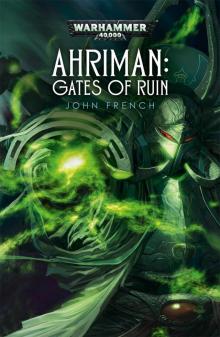 Gates of Ruin - John French
Gates of Ruin - John French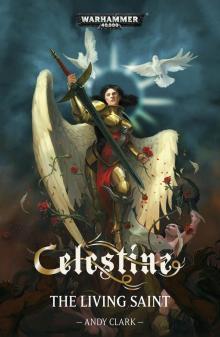 Celestine - Andy Clark
Celestine - Andy Clark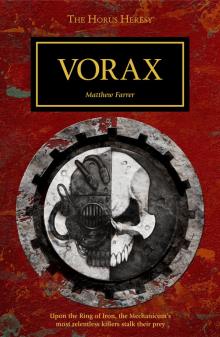 Vorax - Matthew Farrer
Vorax - Matthew Farrer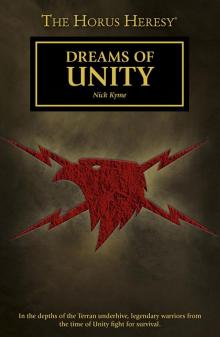 Dreams of Unity - Nick Kyme
Dreams of Unity - Nick Kyme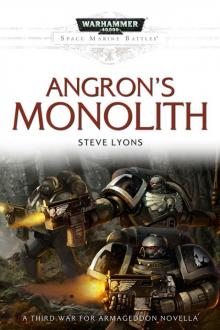 Angron's Monolith - Steve Lyons
Angron's Monolith - Steve Lyons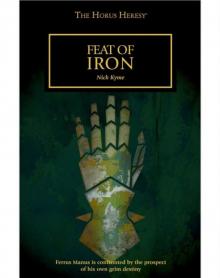 Feat of Iron - Nick Kyme
Feat of Iron - Nick Kyme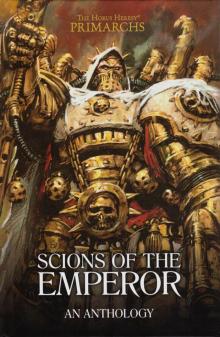 Scions of the Emperor
Scions of the Emperor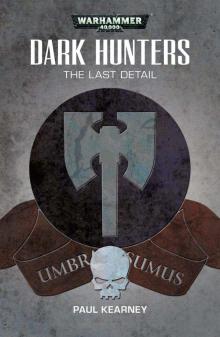 The Last Detail - Paul Kearney
The Last Detail - Paul Kearney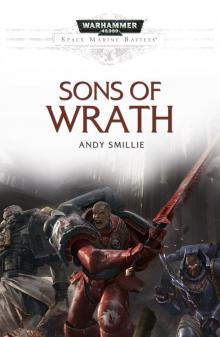 Sons of Wrath - Andy Smillie
Sons of Wrath - Andy Smillie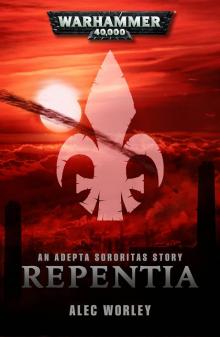 Repentia - Alec Worley
Repentia - Alec Worley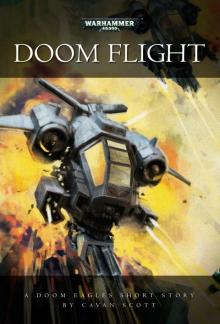 Doom Flight - Cavan Scott
Doom Flight - Cavan Scott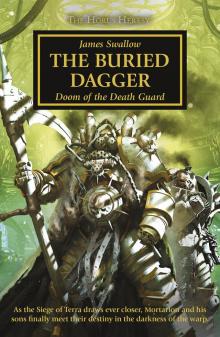 The Buried Dagger - James Swallow
The Buried Dagger - James Swallow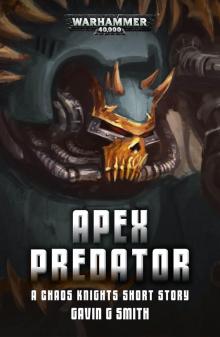 Apex Predator - Gavin G Smith
Apex Predator - Gavin G Smith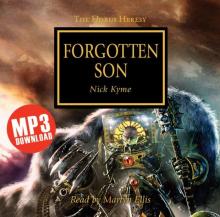 Forgotten Sons - Nick Kyme
Forgotten Sons - Nick Kyme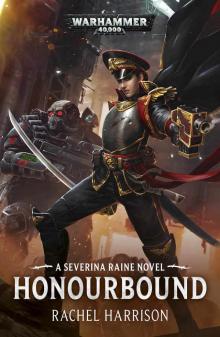 Honourbound - Rachel Harrison
Honourbound - Rachel Harrison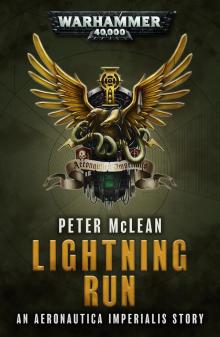 Lightning Run - Peter McLean
Lightning Run - Peter McLean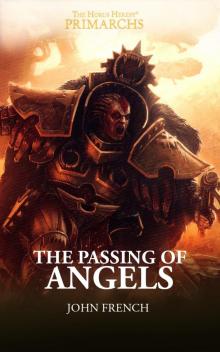 The Passing of Angels - John French
The Passing of Angels - John French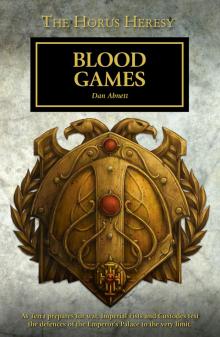 Blood Games - Dan Abnett
Blood Games - Dan Abnett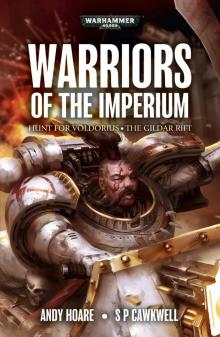 Warriors of the Imperium - Andy Hoare & S P Cawkwell
Warriors of the Imperium - Andy Hoare & S P Cawkwell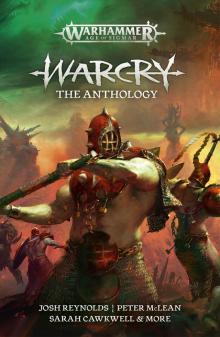 Warcry
Warcry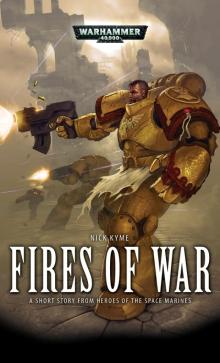 Fires of War - Nick Kyme
Fires of War - Nick Kyme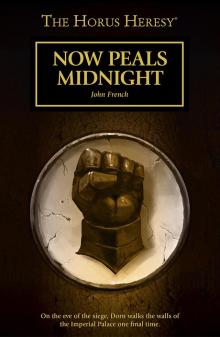 Now Peals Midnight - John French
Now Peals Midnight - John French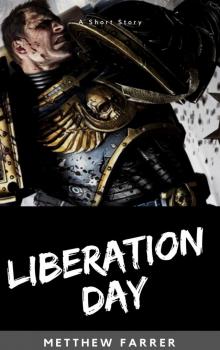 Liberation Day - Matthew Farrer
Liberation Day - Matthew Farrer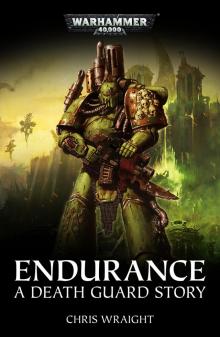 Endurance - Chris Wraight
Endurance - Chris Wraight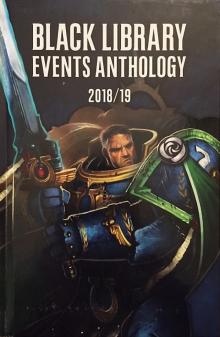 Black Library Events Anthology 2018-19
Black Library Events Anthology 2018-19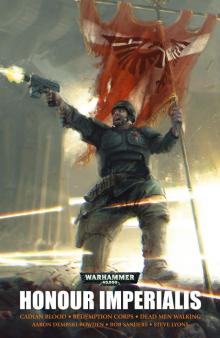 Honour Imperialis - Braden Campbell & Aaron Dembski-Bowden & Chris Dows & Steve Lyons & Rob Sanders
Honour Imperialis - Braden Campbell & Aaron Dembski-Bowden & Chris Dows & Steve Lyons & Rob Sanders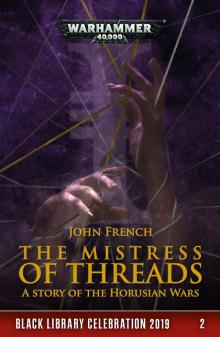 The Mistress of Threads - John French
The Mistress of Threads - John French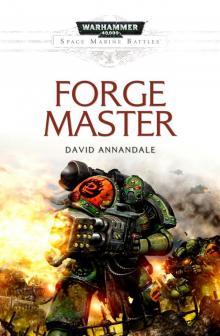 Forge Master - David Annandale
Forge Master - David Annandale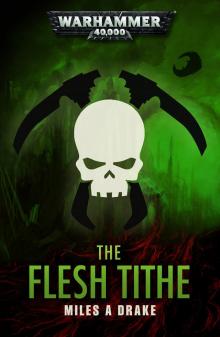 The Flesh Tithe - Miles A Drake
The Flesh Tithe - Miles A Drake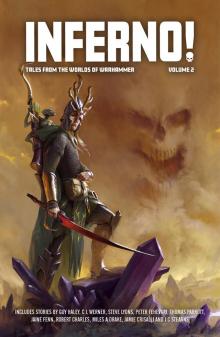 Inferno Volume 2 - Guy Haley
Inferno Volume 2 - Guy Haley Mercy of the Dragon - Nick Kyme
Mercy of the Dragon - Nick Kyme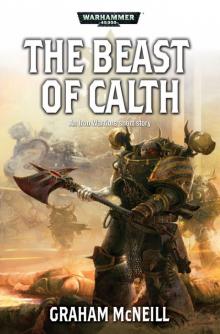 The Beast of Calth - Graham McNeill
The Beast of Calth - Graham McNeill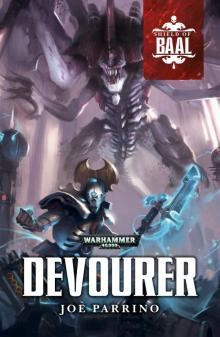 Devourer - Joe Parrino
Devourer - Joe Parrino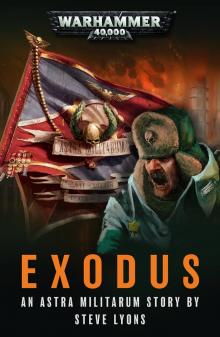 Exodus - Steve Lyons
Exodus - Steve Lyons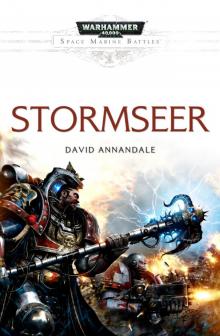 Stormseer - David Annandale
Stormseer - David Annandale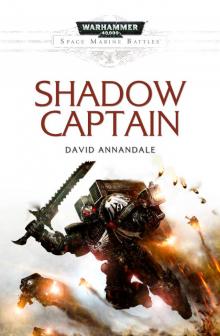 Shadow Captain - David Annandale
Shadow Captain - David Annandale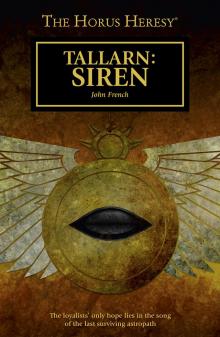 Tallarn- Siren - John French
Tallarn- Siren - John French The Grey Raven - Gav Thorpe
The Grey Raven - Gav Thorpe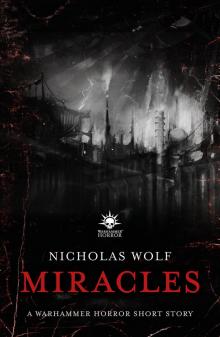 Miracles - Nicholas Wolf
Miracles - Nicholas Wolf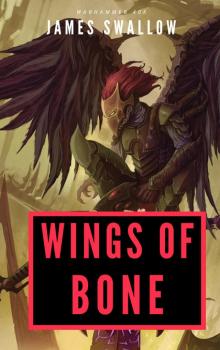 Wings of Bone - James Swallow
Wings of Bone - James Swallow